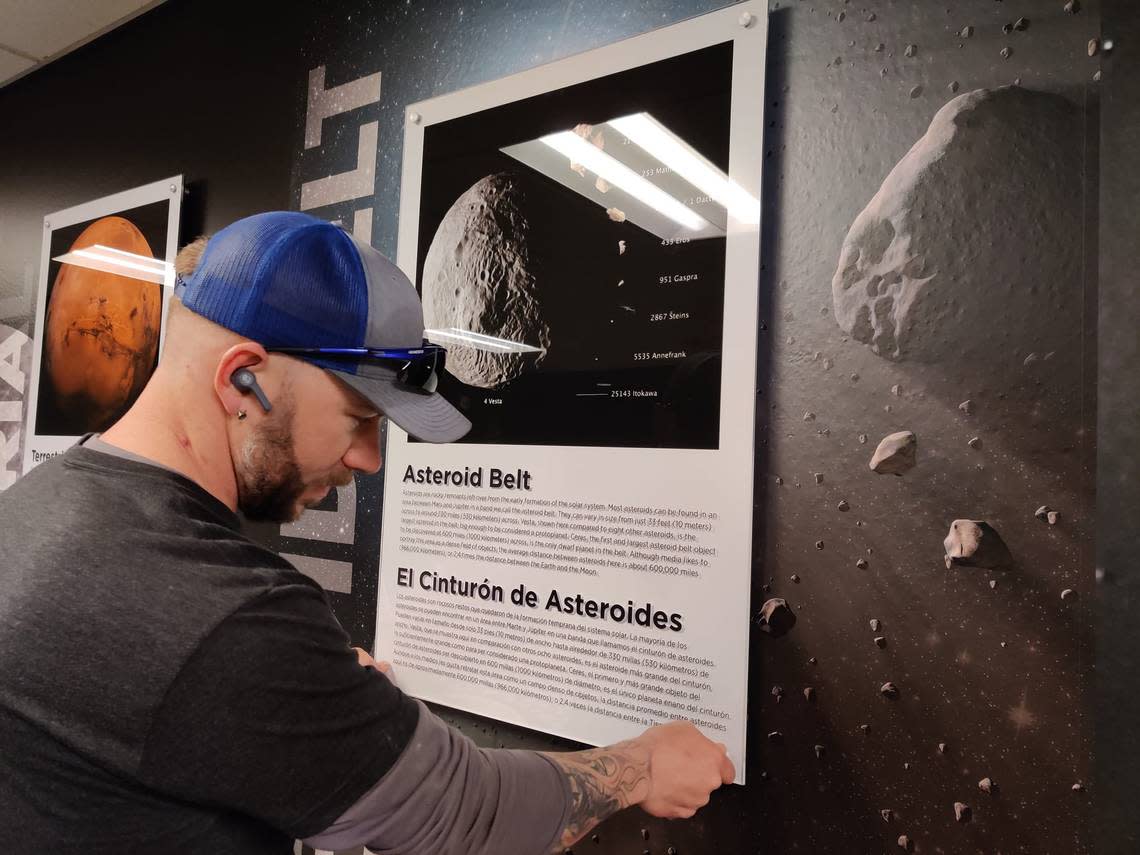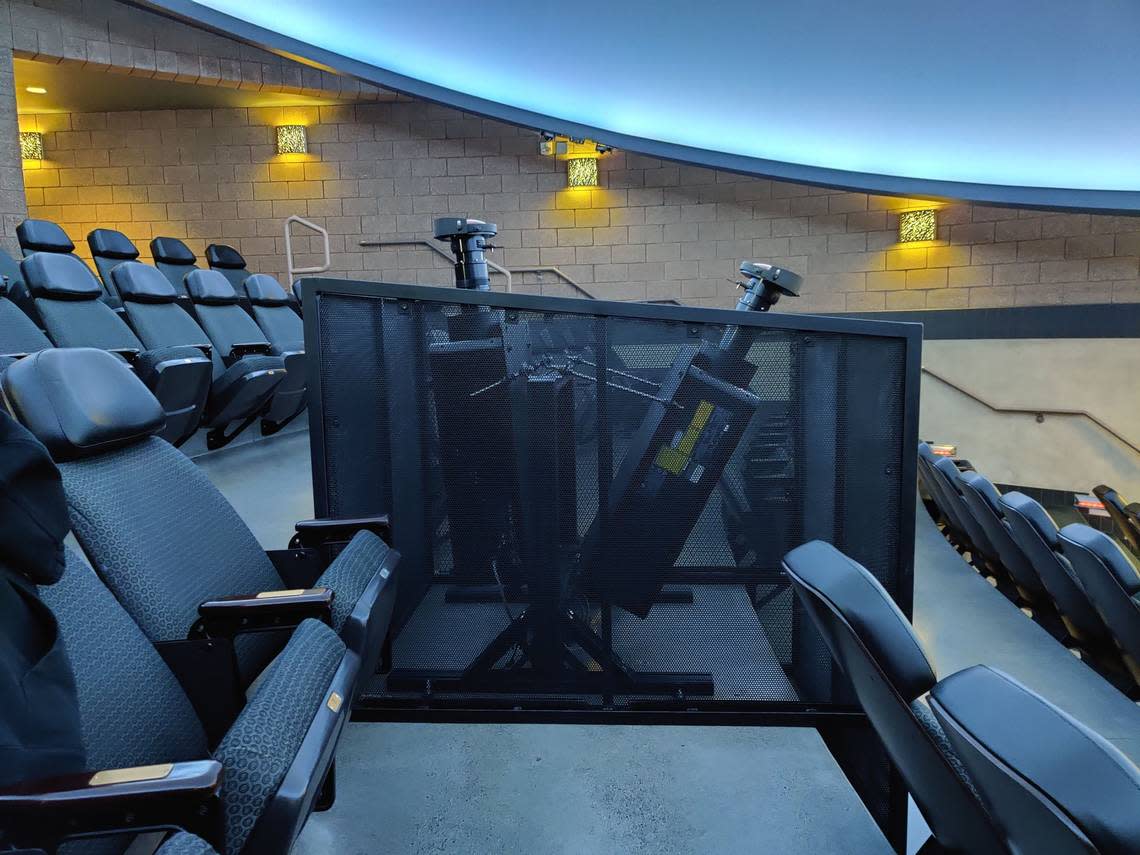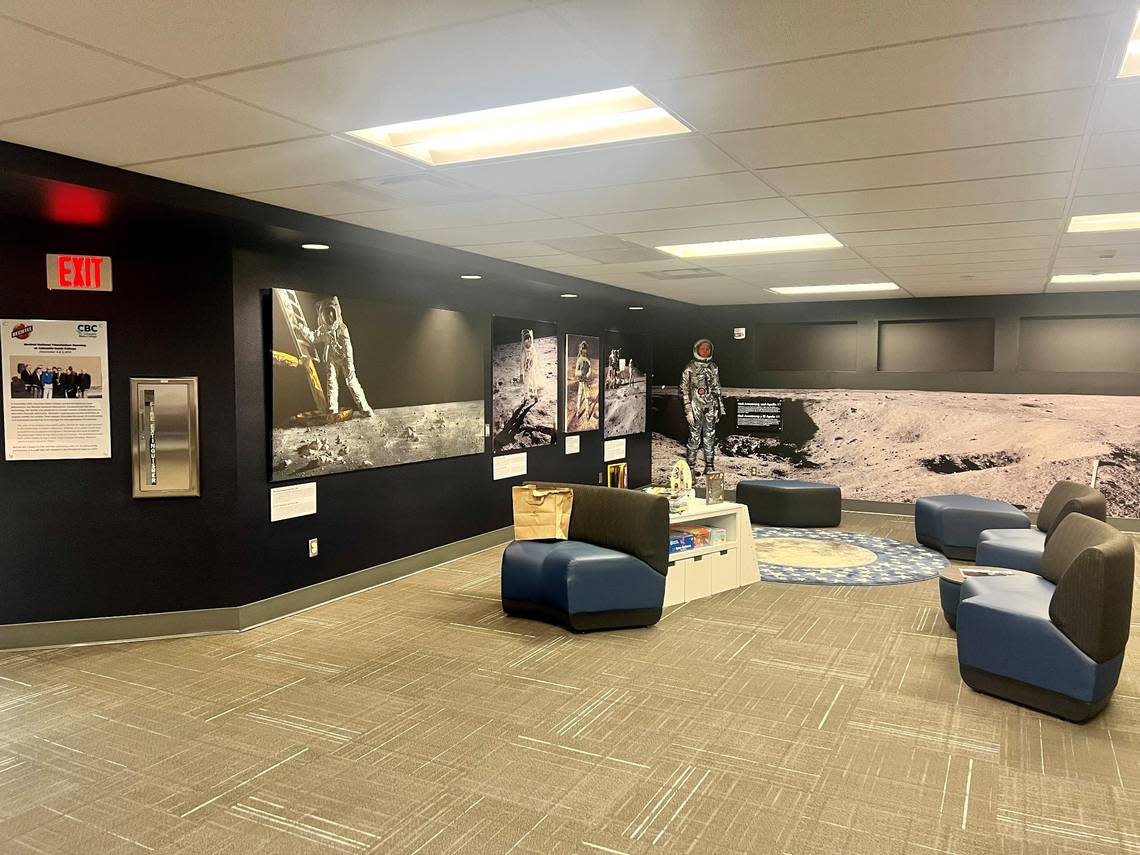Tri-Cities planetarium reopens with a new name and brighter images across its dome
A decade after the Tri-Cities planetarium opened, visitors are being treated to brighter, higher resolution panoramas across its viewing dome and a new learning lobby.
The Columbia Basin College planetarium closed in mid January for upgrades and reopened this month with a new laser projection system, plus state-of-the-art software, an updated and programmable theater lighting system, and new lobby exhibits.
On Tuesday, April 18, CBC plans a ribbon cutting and will recognize Hanford contractor Central Plateau Cleanup Co., or CPCCo, as the new naming rights sponsor of the planetarium.
The company has committed to donating $350,000 to what is now called CPCCo Planetarium.
With the company’s help the planetarium now has a new projection system that doubles the resolution on its 36-foot viewing dome.
“CPCCo’s investment in the new projector creates a memorable, engaging experience that audiences will not only remember, but come back to enjoy again and again,” says CBC President Rebekah Woods.

The original 10-year-old projection system could not be upgraded and needed to be replaced, said Elizabeth Burtner, CBC assistant vice president for communications.
The lighting system around the dome also is new, with multicolor, programmable LED lights.
The lobby has a new look after HAPO Community Credit Union continued its support with a $150,000 donation to create a more immersive learning experience.

The lobby now has a moonscape and earthscape and information in English and Spanish on topics such as meteoroids, gas and ice giants, and the oort cloud.
Over the past decade 147,000 people have visited the planetarium, with about 44% of them high school students and younger.
Visitors to the planetarium see an hour-long show. It starts with a live presentation that often includes a look at stars, constellations and planets that will be seen in the sky that night and a discussion of astronomy topics that are making news.
Then an astronomy or other science-themed film is projected on the dome.
The planetarium is in the D building on CBC’s Pasco campus and can be reached from Argent Road via Farm Road.

Tickets currently cost $8 for adults, $7 for seniors and $5 for children 6 to 12, but some prices will increase this summer. Individuals and families also can purchase annual memberships.
Tickets must be bought online. Go to bit.ly/43E3q0t or find a link to purchase tickets for each show on the CPCCo Planetarium Facebook page.
Planetarium show schedule
Here’s the upcoming schedule of planetarium shows through May:
▪ “Edge of Darkness” shows at 7 p.m. Friday, April 21 and 2 p.m. Saturday, May 13. Recommended for middle school and older. It features scenes of places gathered during space missions, including the first close up of Pluto and its moons and the bright “lights” of Ceres, a dwarf planet.
▪ “The Little Star That Could” shows at 2 p.m. Saturday, April 29. Recommended for preschool through second-grade. A yellow star searches for planets to warm and protect, providing children with basic information about the solar system.
▪ “Violent Universe” shows at 7 p.m. Friday, May 5. Recommended for fourth-grade and older. Patrick Stewart narrates a show about the power of the universe, with stars collapsing under their own gravity and infernos of nuclear energy releasing deadly radiation.
▪ “Robot Explorers” shows at 7 p.m. Friday, May 19. Recommended for fourth-grade and older. Unmanned probes were launched into the far reaches of the solar system in recent decades to beam information back to Earth.
▪ “Kaluoka’hina: The Enchanted Reef” shows at 2 p.m. Saturday, May 27. Recommended for elementary school ages and older. A young cartoon sawfish and his friend go on a quest to save an enchanted, underwater reef.
Other shows scheduled through the summer focus on Pluto, trees, stars, cells, telescopes and black holes.
